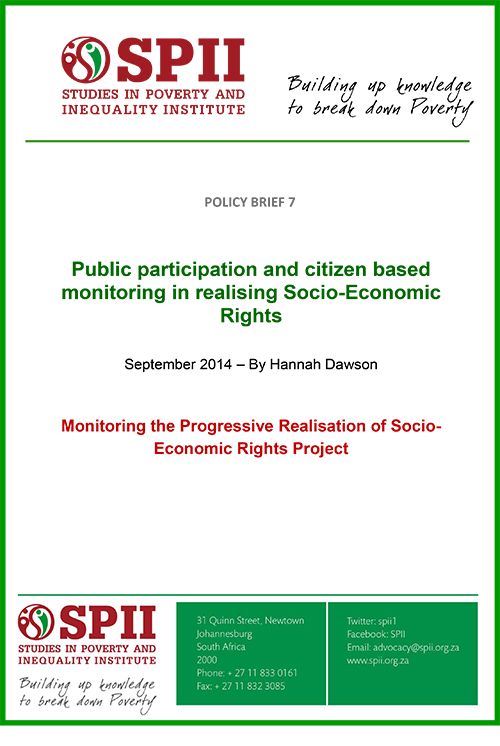Citizen-Based Monitoring of Socio-Economic Rights
The Socio-Economic Rights (SER) Monitoring Tool developed by SPII provides a programmatic and long term approach to monitoring and evaluating the progressive realisation of SERs in South Africa. The tool combines policy and budget analysis with statistical indicators with the overall aim of guiding policy and the implementation of SERs.
Thus far, the Tool has emphasised quantitative measures that are well suited to mapping trends and patterns over time but do not include citizen-based monitoring (CBM) and other mechanisms for public participation in monitoring the fulfillment of SERs. This is a result of a number of factors, firstly, the difficulty of disaggregating data to ward or community level where the breakdown in service delivery is most acute, and secondly, the scarcity and often complete absence of data at a facility level where citizens engage directly with the state.
Despite these challenges the SER Monitoring Tool acknowledges both the importance and necessity of rights-holders and the recipients of government services and goods themselves actively participating in the monitoring of government. CBM is particularly relevant when to date most of the current monitoring and recourse measures occur at policy or programmatic levels and not where they are often most urgently needed – at the local or facility level.
Read more about SPII’s initial overview of the CBM methods currently being implemented in South Africa, and our initial assessment of how we might begin to incorporate a CBM element into our SER Monitoring Tool, in our Policy Brief 7–Public participation and citizen-based monitoring in realising socio-economic rights.












